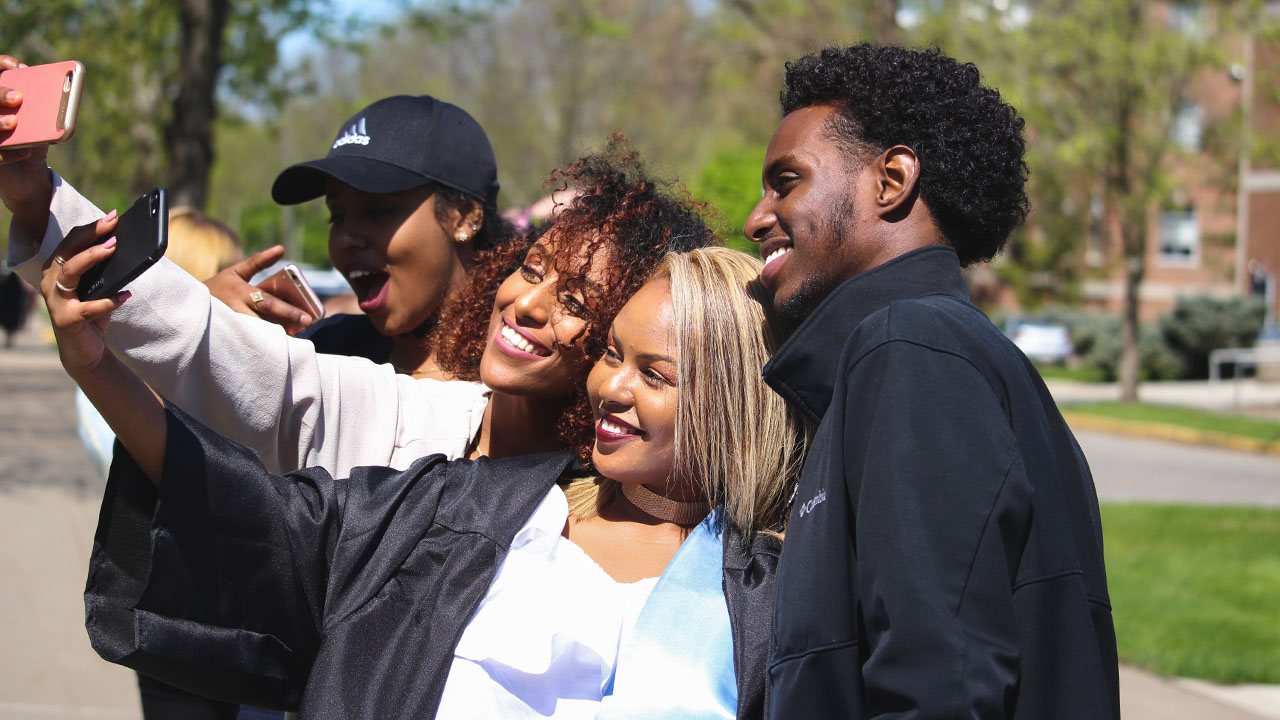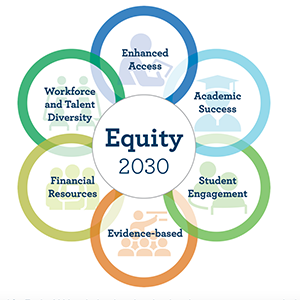
Striving to create a more welcoming, equitable, and educational experience for our campus is a big deal for Winona State University.
Through campus culture, support services, and academic curriculum, our goal is to provide an environment where diverse backgrounds and lived experiences are not only valued, but also an integral part of our community.
One way WSU is working toward this kind of environment is by actively participating in the statewide Equity 2030 project. The purpose of the Equity 2030 project is to eliminate educational equity gaps at all Minnesota State Colleges and Universities by the year of 2030.
Through intentional changes, collaboration, and focus on empowerment, change is possible.
Meriel LaForce, Nayely Ramirez, and other student equity consultants are working on a localized effort toward this statewide initiative. Their goal is to learn how WSU may be able to close academic equity gaps that disproportionately affect students who identify as Black, Indigenous, and people of color (BIPOC).
These equity consultants plan to do this through organizing a focus group and facilitating conversations with BIPOC students from Winona State University. This research will be applied to make impactful changes both at WSU and through the MinnState system altogether.
Interview or Focus Group Requirements
Want to participate in an individual interview or focus group and share your experiences to better WSU?
Make sure you meet these requirements:
- Be 18 years and above
- Identify as BIPOC
- Identify as a first-generation college student
- Identify as a Pell Grant recipient
- Are currently a WSU student
- Are a freshman, sophomore, junior, or senior at WSU

When participating in an interview or focus group, the estimated time commitment is no more than 90 minutes in length.
You’ll also receive a $20 electronic gift card for your time once the study has completed.
These efforts are being made in order to create educational equity for people of all races, ethnicities, socioeconomic statuses, and geographic locations.
If you’re interested in joining this study making Winona State University a more equitable campus—or you’d like additional information—please contact Meriel LaForce at me************@*******na.edu or Nayely Ramirez nr*************@****na.edu by Feb. 14 to be included.